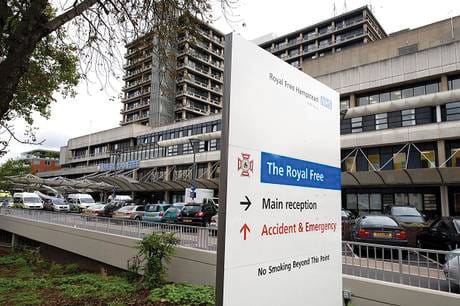Imperial alumnus killed in Syria
Dr Isa Abdur Rahman killed while helping British charity at a hospital in Syria. His family and friends have paid tribute to him, and a hospital will be built in his honour.

An Imperial alumnus has been killed in Syria after a bomb hit the field hospital where he was treating patients in challenging conditions. Isa Abdur Rahman (pictured), 26, was a medical student at Imperial and was killed while helping the British charity Hand In Hand for Syria (HIHS).
Dr Rahman was from North West London and was married. He had put his medical career in the UK on hold to help the civilians hurt by the conflict in Syria. Even though he was not a native Arabic speaker, he managed to master the language in less than a year.
He left his job at the Royal Free Hospital almost a year ago and flew to Syria to set up a clinic in the village of Atmeh, near the border of Turkey, before moving from town to town offering medical help. Doctors in Syria work in extreme conditionswith a shortage of resources and the daily danger of being attacked. He died after a shell hit the hospital that he was working with, which was a secret clinic in the Idlib province. His body was buried last week in Atmeh. Two other civilians also died and two were wounded. The attack has been blamed on government forces by HIHS.
Last Friday, over 200 people gathered in Kilburn with Isa’s family for a condolences session. There were Imperial students from five different year groups who attended to pay their respects, as well as teachers from his school and consultants from his hospitals.
Faddy Sahloul, Chairman of Hand in Hand Syria (HIHS) described Dr Isa as “a shy young man whom I first met two years ago.” He went on to say: “Everyone who knew him is shocked and saddened to hear the tragic news of his death, but we can draw comfort from the fact that he died doing work that he loved. Our thoughts and prayers are with his wife and family at this difficult time.”
HIHS said: “The brave young doctor sacrificed his life to save the lives of others and he will be very sorely missed by the many family, friends and colleagues who knew him.” HIHS is a non–political organisation that was established at the start of the Syrian uprising in 2011. Over the last two years, over 80,000 innocent lives have been lost in the Syrian crisis. HIHS aims to provide medical and humanitarian help to civilians who have been impacted by the conflict in Syria. They have set up secret facilities in locations where it is too dangerous for casualties to use the government hospitals or where the hospitals have been shut down.

Isa was a dear friend to many students at Imperial, and was heavily involved with the Islamic Society (ISoc) during his time at university. His other philanthropic endeavours include heading the Imperial Charity Week team in 2008, a project that enabled Imperial students to raise £22,839.25 for orphans and needy children around the world. In addition, Isa actively organised tutorials and PotMed events for the Muslim Medics society, as well as offering advice and guidance to younger students. He was also a member of the Snooker and Book clubs at Imperial.
Isa was described as a dedicated volunteer who strived for good and profoundly touched the hearts of many people with his endeavours, and as a true inspiration to everyone – many will deeply miss him. On behalf of the ISoc at Imperial, the President, Hazem El-Turk, commented: “Isa was undoubtedly one of the most exceptional individuals to pass through our Society. His contribution to university life, as well as his passion and commitment to issues beyond that are things that we remember him for today. Our thoughts are with his family in this difficult time, and we hope that his selfless actions will inspire others to engage more in humanitarian issues worldwide”. Muslim Medics and the ISoc will be having a tribute to Isa later on in the year.
Aamir Shamsi, a 5th year medic at Imperial said that Isa was “a great man and an elder brother to me.” Aamir went on to say: “Isa’s patience and wisdom wasbeyond doubt even at such a young age. He had a towering presence and was highly respected in the community but he was so modest and humble that you would never have realised his incredible achievements until someone told you. He was and will continue to remain a great role model.”
Over £50,000 donated for hospital in his honour
His friends set up a JustGiving page for people to donate money for a new field hospital to be set up in his memory to continue his work. The original plan was for anew ambulance in his memory. However, the £7000 needed was raised in fewer than 14 hours. His friends said that the speed with which the money was raised was “a testament to the character of Isa and the beauty of the people who know him”. The aim was changed to the more ambitious target of setting up a field hospital, which would be named after Isa. In the last week, over £50,000 has been raised, which means a field hospital in Syria can be set up after Isa and will be run by HIHS in his memory.
On the Just Giving page, his friends paid tribute to him. They said: “Those who knew him personally, and those who have heard of him, will know what an amazing, inspirational, kind and deeply-caring person he was. It is quite hard to know where to even begin describing what an amazing person he was, and all of us are still in shock.”
The donations, which came in thick and fast, came with comments paying tribute to him. Anne Hinojosa said: “I am so sorry to hear of the death of this brave young man. What a beautiful, inspirational human being.” Not all of the donations were from fellow Muslims; some appeared to be from people that did not know him personally and/or are not Muslim. Anthony Page said: “A brave man… Respect… from an atheist.” At the time of going to print there have been over 900 donations.
Dr Mahmoud al Akraa, a close friend of Dr Isa, commented that “once you met Isa you never forgot him. He was so kind, so warm and so brave. He had the respect of everyone and would do anything to help others in need. One time one of the refugee camps in Syria had cholera and no doctor would go in, except Isa. He would risk his life for others. He worked up until midnight and would treat hundreds of patients each day. He would then sleep rough in a sleeping bag and often not wash for days.”
There is more information on the field hospital being set up in his honour on the JustGiving page, where donations can be made: http://www.justgiving.com/for-Isa








